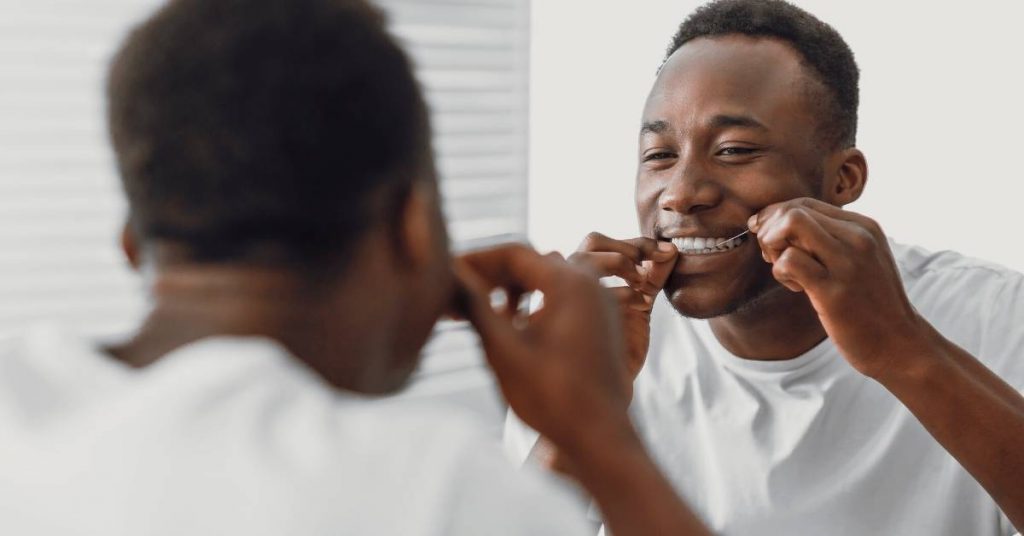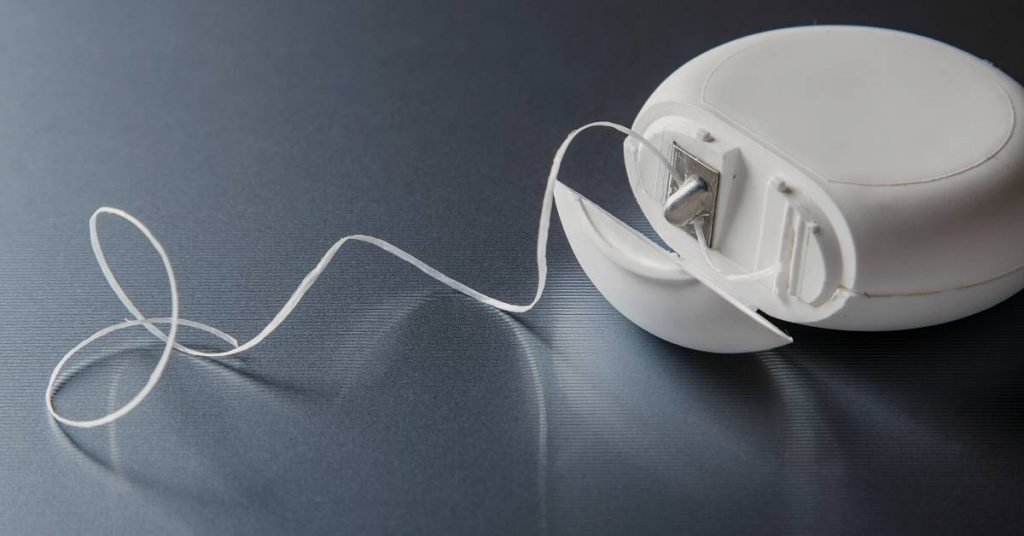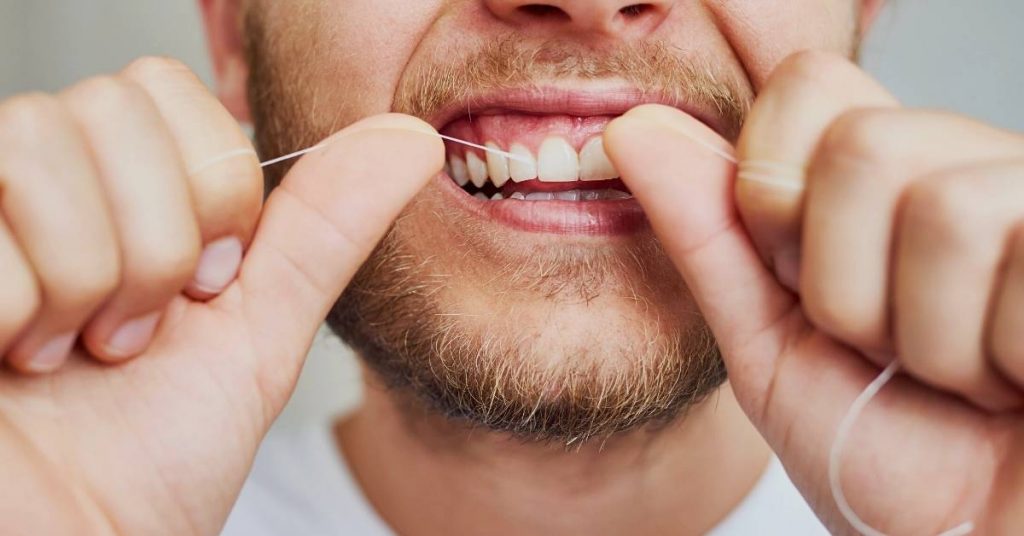Flossing is an essential part of oral care, and there are many reasons why you should do it twice a day. From removing plaque and bacteria to preventing gum disease and tooth decay, flossing has a lot of benefits, but you can also overdo it! So, how many times per day should one floss their teeth? If you’re not convinced, read on to learn more about why you should start flossing today.
How often should you floss your teeth?

Flossing is an essential part of oral care, but it cannot be very clear how often to do it. The American Dental Association (ADA) recommends flossing once a day. However, if you have difficulty flossing, you can try flossing every other day or even every three days.
No matter how often you floss, make sure to do it correctly. Floss slowly and carefully, using gentle up-and-down motions. Be sure to get in between your teeth, including the back ones. You may also want to use a water flosser or interdental brush to clean those hard-to-reach areas.
Flossing is an important part of oral care, but knowing how often to do it can be confusing. The American Dental Association (ADA) recommends flossing once a day. However, if you have difficulty flossing, you can try flossing every other day or even every three days.
Are you feeling guilty about not flossing your teeth?
Well, don’t worry – you’re not alone. In 2016, the American Academy of Periodontology acknowledged that the research supporting daily flossing was weak because of a lack of participants or long-term studies.
However, it’s important to understand that:
- most people do not floss properly
- severe periodontal disease may take five to 20 years to develop.
General dentists advise that periodontal disease is easily preventable with proper dental hygiene. So if you’re not flossing, now is the time to start!
Why you should be Flossing Twice a Day
The thing about flossing is that it’s one of those things that many people know they should be doing but don’t do. And that’s a shame because flossing is a crucial part of oral care.
But why is flossing so important? Well, it helps remove plaque and bacteria from your teeth and gums – crucial for keeping your teeth healthy and your smile looking good. It is as crucial as brushing your teeth before breakfast. Flossing also helps prevent gum disease and tooth decay, both of which can lead to some serious oral health issues.
So if you’re not currently flossing every day, make it a goal to start today. And if you are already flossing daily, keep it up – it’s definitely worth the effort!
Can you floss too much?

It’s a valid question: Can you floss too much? And the answer is…maybe.
Flossing is an important part of oral care, but if you’re doing it too often or vigorously, you could be doing more harm than good.
Here are a few things to keep in mind if you’re wondering whether you might be flossing too much:
- Floss once a day, at most. More than that can irritate your gums.
- Be gentle when flossing. Don’t use too much pressure, especially if your gums are sensitive.
- If your gums are still bleeding after you floss, you’re flossing too hard. Cut back on the pressure.
- If you have braces or other dental appliances, avoid damaging them when flossing.
11. Common Flossing Mistakes You Need To Avoid, If You Want To Have Healthy Teeth
Flossing is essential in oral care, but many people don’t do it correctly. If you’re not flossing properly, you could do more harm than good.
Here are a few common flossing mistakes to avoid:
1. Not flossing regularly

It will help if you floss at least once daily, ideally after every meal. If you’re not doing that, you’re not reaping the full benefits of flossing.
2. Not using enough floss
Using too little floss will make the process take longer and won’t be as effective. A good rule of thumb is to use about 18 inches (45 cm) of floss wrapped around your middle fingers.
3. Flossing with too much pressure
You don’t need to apply a lot of pressure when flossing. Using too much stress can damage your gums. Just be gentle and let the floss do the work.
4. Not flossing properly
It’s important to use a back-and-forth motion when flossing, rather than sawing the floss back and forth. And be sure to get between your teeth, including the back ones.
5. Not rinsing after flossing
Rinsing with water after floss will help remove any plaque or bacteria you’ve loosened up. Just be sure to use a gentle rinsing motion, as too much force can damage your gums.
6. Flossing your gums
Many people mistakenly think they should floss their gums instead of their teeth. But it would help if you floss both your gums and teeth. Start by gently sliding the floss between your gum and tooth, then move it up and down against the side of your tooth.
7. Not flossing completely
When you floss, you should be sure to go around the tooth – from top to bottom and from the front to the back. Don’t just focus on the front surfaces of your teeth.
8. Not Changing Your Floss Regularly
If you’re using the same piece of floss for your entire mouth, you’re not doing it right. You should be using a clean piece of floss for each tooth. Otherwise, you’re just moving bacteria and plaque around.
9. Using the wrong type of floss
There are different types of floss available, so be sure to choose one that’s right for you. If you have braces, for example, you’ll need to use a different type of floss than someone without braces. Ask your dentist for advice if you’re not sure which kind of floss to use.
10. Flossing After Brushing Your Teeth
Ideally, it would be best if you floss before brushing your teeth. That way, you’ll remove any plaque or bacteria loosened up by the floss and brush away any left behind. If you touch first, you could push the plaque and bacteria back into your teeth. Also, brushing your tongue should not be done right before flossing.
11. Quitting When Your Gums Bleed
If your gums bleed when you floss, it’s a sign that you need to floss more – not less. The bleeding will stop once your gums get used to the flossing. In the meantime, be gentle and consistent.
If you’re not sure if you’re flossing correctly, ask your dentist for advice. They can show you the proper technique and help you troubleshoot any problems.
How to floss your teeth properly if you are a beginner
If you are new to flossing, here is a step-by-step guide on how to do it properly:
- Start with about 18 inches (45 cm) of floss wrapped around your middle fingers.
- Use your thumbs and index fingers to guide the floss between your teeth.
- Gently slide the floss up and down against the side of your tooth.
- Be sure to go around the tooth – from top to bottom and from the front to the back.
- Use a clean piece of floss for each tooth.
- Rinse with water when you’re done to remove any plaque or bacteria that you’ve loosened up.
If you’re not sure you’re flossing correctly, ask your dentist for advice. They can show you the proper technique and help you troubleshoot any problems.
Frequently Asked Questions
Can floss damage gums?
Flossing can damage gums if done too vigorously or too often. It’s best to floss once a day, using gentle pressure. With braces, be careful not to damage the appliances when flossing. The best way to floss teeth is gently and once a day.
Is flossing twice a day too much?
Flossing more than once a day can irritate gums, so it’s best to stick to once a day.
Is it possible to floss too hard?
You could damage your gums if you use too much pressure when flossing. If your gums are bleeding after flossing, you’re probably using too much pressure. Cut back on the stress and be gentler when flossing.
What happens if you floss too much?
If you floss too much, you could damage your gums or dental appliances. It’s best to floss once a day, using gentle pressure. Be careful not to use too much pressure when flossing; if your gums are still bleeding after you floss, cut back on the pressure.







